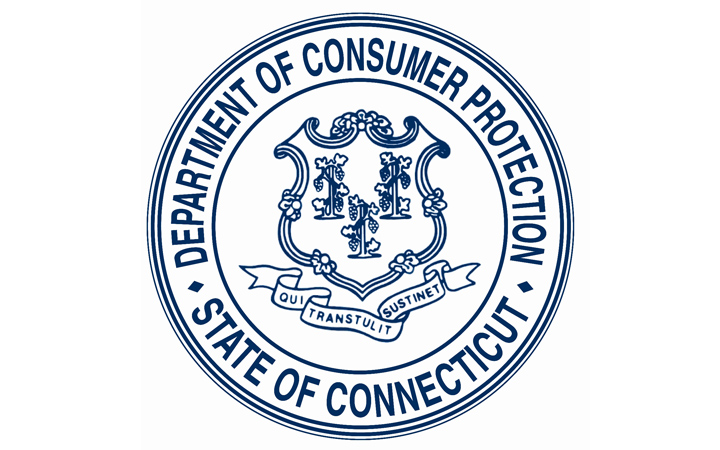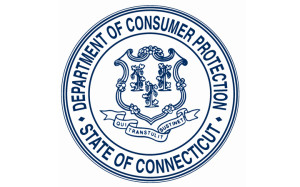
 May 1, 2018
May 1, 2018
For Immediate Release
From the Office of John J. Suchy, Division Director of Liquor Control
Ruling on Hotel Convenience Centers
The Department has issued a declaratory ruling on the use of hotel convenience centers.
- In summary, a hotel convenience center is typically an area inside the hotel permit premise that provides hotel guests and customers the opportunity to purchase non-alcoholic beverages, toiletries, magazines, snacks, and other convenience items;
- A hotel convenience center, if it sells alcoholic beverages, must have prepared food available for sale, such as sandwiches, salads, pizza, and other non-snack items (room service options or an in-house restaurant are also sufficient to meet this requirement, provided the room service is available and the restaurant is open during all times alcohol is available for sale);
- The sale or dispensing of the alcohol beverage cannot be self-service;
- A hotel employee must provide the alcoholic beverages to the guest or customer, and the beverage must be opened and not in a sealed container at the time of delivery;
- The sale and delivery of such alcoholic beverages may only take place during the legal hours of sale as defined in CGS 30-91(a);
- The guest or customer cannot remove the alcoholic beverage from the permit premise;
- The guest or customer must be of legal drinking age and not intoxicated at the time of service; and
- The premise will comply with all other relevant statutes and regulations governing hotel permits.
Full text of the ruling is as follow:
STATE OF CONNECTICUT
DEPARTMENT OF CONSUMER PROTECTION
In Re: ) CAVU No. 18-270
Declaratory Ruling Regarding Hotel )
Convenience Centers ) April 23, 2018
SUA SPONTE DECLARATORY RULING
Pursuant to Connecticut General Statutes § 4-176 and Regulations of Connecticut State Agencies § 21a-1-10, I am issuing this sua sponte Declaratory Ruling regarding the sale of alcoholic beverages in hotel convenience centers located in premises holding a hotel liquor permit issued by this Department. This Declaratory Ruling clarifies the applicability of the Liquor Control Act and its regulations, particularly Connecticut General Statutes §§ 30-21 and 30-37i, and Regulations of Connecticut State Agencies §§ 30-6-B33a and30-6-B33b.
According to Connecticut General Statues § 30-21(a), a hotel permit “shall allow the retail sale of alcoholic liquor to be consumed on the premises of a hotel.” The permit does not limit the sale of alcohol to one specific type of location. This is expressly different from Connecticut General Statutes § 30-37i, which creates a hotel guest bar permit. This permit is “available to a hotel permittee [and] shall allow the retail sale of alcoholic liquor located in registered hotel guest rooms.” Thus, a hotel permit granted pursuant to Connecticut General Statutes §30-21(a) allows the retail sale of alcoholic liquor from an assorted variety of locations on the permit premise. One such location could be a convenience center that provides hotel guests and customers the opportunity to purchase soda, water, snacks, magazines, toiletries, and the like.
It is equally important to note the limitations of a hotel permit. A hotel permit is only available in “hotels,” which are defined as “every building or other structure kept, used, maintained, advertised, or held out to the public to be a place where food is served at all times when alcoholic liquor is served and where sleeping accommodations are offered for pay to transient guests. . . .” Connecticut General Statues § 30-21(d) (emphasis added). It is clear that some type of food must be available during alcohol service hours. It is notable that the statute does not require “a full course meal,” as needed for a restaurant permit. Cf. Connecticut General Statutes § 30-22 (a). However, the food must be of the type that can be “served”, which implies some type of preparation. Snack food, such as prepackaged chips, crackers, or nuts, is not sufficient.
Additional limitations apply. A hotel permit does not allow a patron to remove alcoholic liquor from the permit premise. Nor does a hotel permit allow an employee to sell sealed containers of alcoholic liquor or to sell alcoholic liquor in quantities that would violate the drink restrictions regulation, for example a full bottle of wine to a single patron (Conn. Regs. of State Agencies § 30-6-A24b). Moreover, a hotel permit for beer granted under Connecticut General Statutes § 30-21(b) only allows the permittee to sell beer and cider not exceeding 6% by volume.
Lastly, a hotel permit carries with it the responsibilities inherent in the service of alcohol. All patrons served must be of the legal drinking age and not intoxicated at the time of service. It is incumbent upon the hotel permittee to insure full compliance with all liquor laws and regulations.
Based upon the forgoing, I hereby rule as follows:
The Department will allow the sale of alcoholic liquor in convenience centers of hotels operating under a hotel permit granted pursuant to Connecticut General Statues § 30-21(a). The Department will also allow the sale of beer and cider not exceeding 6% by volume in convenience centers of hotels operating under a hotel permit for beer granted pursuant to Connecticut General Statutes § 30-21 (b). However, the minimum following conditions must be met under either situation:
- A hotel convenience center is typically an area inside the hotel permit premise that provides hotel guests and customers the opportunity to purchase non-alcoholic beverages, toiletries, magazines, snacks, and other convenience items;
- A hotel convenience center, if it sells alcoholic beverages, must have prepared food available for sale, such as sandwiches, salads, pizza, and other non-snack items (room service options or an in-house restaurant are also sufficient to meet this requirement, provided the room service is available and the restaurant is open during all times alcohol is available for sale);
- The sale or dispensing of the alcohol beverage cannot be self-service;
- A hotel employee must provide the alcoholic beverage to the guest or customer, and the beverage must be opened and not in a sealed container at the time of delivery;
- The sale and delivery of such alcoholic beverage may only take place during the legal hours of sale as defined in Connecticut General Statutes § 30-91(a);
- The guest or customer cannot remove the alcoholic beverage from the permit premise;
- The guest or customer must be of legal drinking age and not intoxicated at the time of service; and
- The premise will comply with all other relevant statutes and regulations governing hotel permits.
Michelle H. Seagull, Commissioner, Department of Consumer Protection
The Department of Consumer Protection, through the State Liquor Control Commission, oversees all sales of liquor in the State of Connecticut. 165 Capitol Avenue, Hartford, Connecticut 06106-1630, Liquor Control Division website www.ct.gov/dcp



